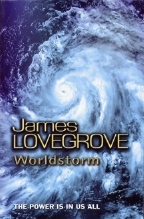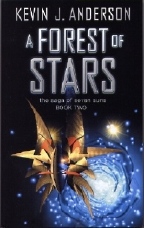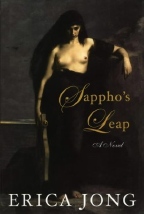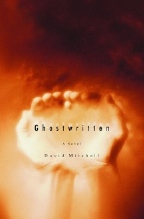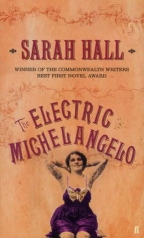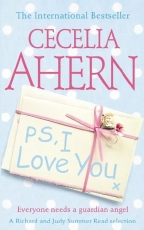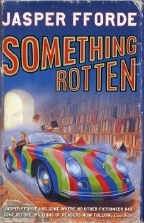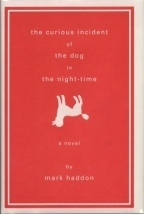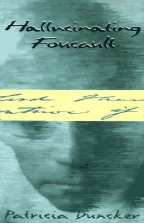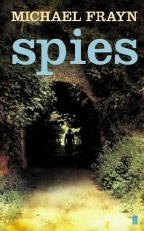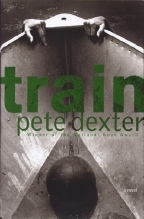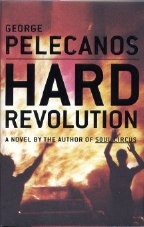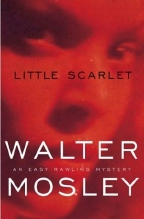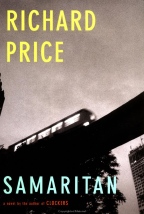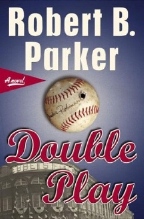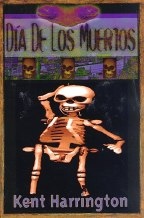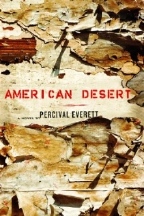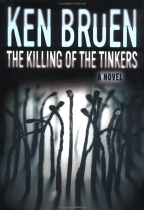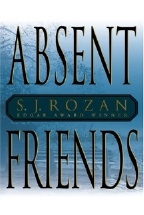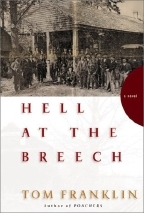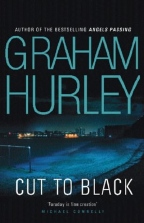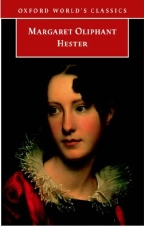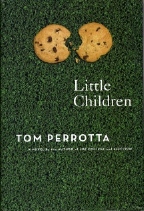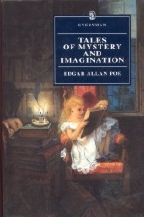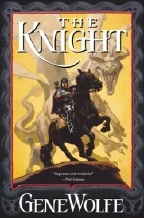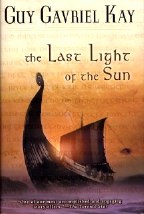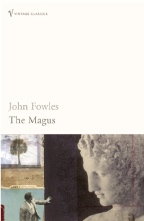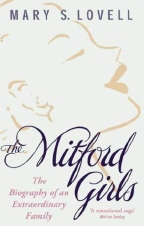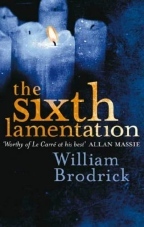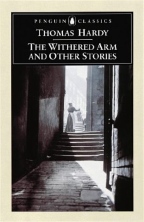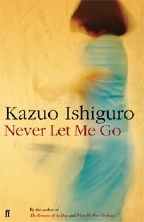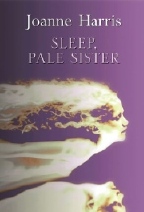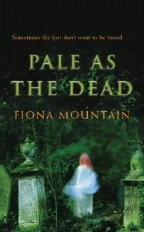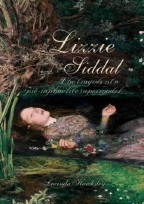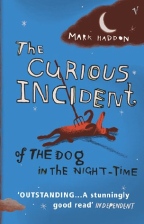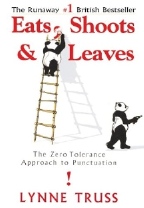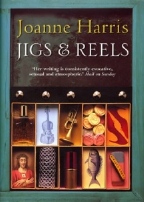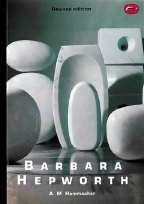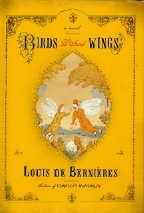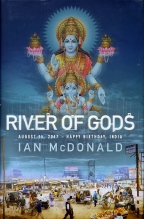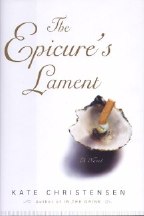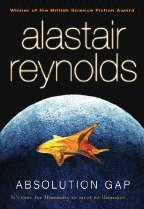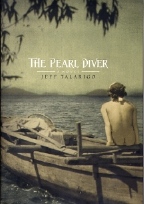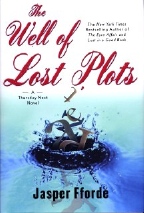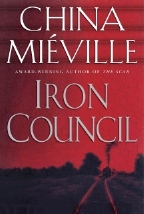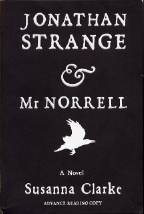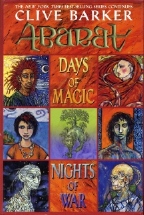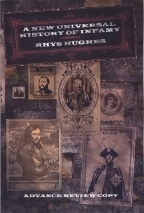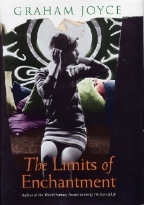Five by Ten
Five Top Ten Lists from 2004
The Agony Column for January 24, 2005
Commentary by Stephanie Cage, Terry D'Auray, Katie Dean, Rick Kleffel and Serena Trowbridge
Five Top Ten Lists from 2004
The Agony Column for January 24, 2005
Commentary by Stephanie Cage, Terry D'Auray, Katie Dean, Rick Kleffel and Serena Trowbridge
Introduction
by Rick Kleffel...
Stephanie Cage Worldstorm by James Lovegrove A fascinating premise and fantastic writing. Lovegrove gives us a window on a complex and convincing world through the stories of two misfit youngsters, Gregory and Yashu, and the reminiscences of Elder Aayn, whose foreknowledge of his death drives his efforts to make his short remaining time worthwhile. The Saga of Seven Suns by Kevin J. Anderson OK, so I’m cheating just a little here. I just couldn’t settle on my favourite volume of the story so far so I’m recommending the lot! They all share Anderson’s great strength: the ability to balance the epic scope of the overall story with some very personal storylines. Interplanetary battles between alien races jostle for space with bitter-sweet romances and political satire. This is science fiction on a grand scale in the tradition of Asimov’s Foundation and Herbert’s Dune. Sappho’s Leap by Erica Jong Sappho’s Leap combines a powerful portrayal of female relationships and sexuality with a surprising amount of scholarship. Much more than just a biography, the book brings Sappho to life in all her creative, unconventional splendour, and takes us on a half-real, half-fantastic tour to rival the adventures of Odysseus. Ghostwritten by David Mitchell This extraordinary first novel came to my attention when its author was shortlisted for the 2004 Booker Prize for his latest novel, Cloud Atlas. At times it reads more like a collection of short fiction than a novel, but gradually links emerge between the varied accounts and a complex story takes shape. From politics to romance, Mitchell encompasses the whole range of human experience (and then some!). The Electric Michelangelo by Sarah Hall Another very accomplished book from a fine young writer, also shortlisted for this year’s Booker Prize. The book tells the story of tattooist Cy Parks: his travels from England’s Morecambe Bay to the boardwalks of Coney Island, the strange insights he arrives at through his profession, and how he finds and loses the love of his life. PS. I Love You by Cecelia Ahern I was all ready to despise this piece of fluffy chick-lit by the 22-year-old daughter of the Irish Prime Minister, but within pages I was beguiled by grieving widow Holly and eagerly following the letters left to her by her husband Gerry. Her family and friends also come entertainingly to life as they support Holly in her efforts to reconstruct her shattered life. Touchingly true-to-life moments rub shoulders with near farce, and the result is a thoroughly uplifting read. Something Rotten by Jasper Fforde I keep expecting Fforde to run out of steam, but his latest book is every bit as lively, witty and bizarre as the earlier adventures of literary detective Thursday Next. With Hamlet as house-guest, cloned dodos as pets, and the fate of the world riding on a croquet match, this may be Thursday’s oddest adventure yet. And, of course, I’m deeply grateful to Fforde for helping put my old home town (and my favourite roundabout) on the literary map. The Curious Incident of the Dog in the Night-time by Mark Haddon A dead dog, an autistic teenager and a family battling against a rising tide of chaos. Not the most intrinsically appealing topics, but Haddon spins them into a funny, poignant and memorable tale which thoroughly deserves its many plaudits. I’m probably about the last person to read it and I wish I’d got around to it sooner. (Oh, and, it’s based in Swindon too). Hallucinating Foucault by Patricia Duncker Patricia Duncker is a new discovery for me, and this, her first novel, is reminiscent of David Lodge’s work, both for its academic setting and for its fascination with the creation of stories and the relationship between author and reader. Renowned author Paul Michel languishes alone in an insane asylum in France while his works are studied the world over, but one student sets out on a daring journey to try to rediscover the man behind the story. Duncker manages an enjoyable take on some serious subjects (fiction, madness and death) without belittling her subject matter – no easy feat. Spies by Michael Frayn Frayn’s success in winning the Whitbread Novel of the Year award in 2002 for this, his first novel, was overshadowed by his failure to snatch the overall award away from his wife for her biography of Pepys. On a year with a less impressive shortlist Spies would almost certainly have scooped the overall prize. The story of two boys growing up in war-torn England, Spies is a curiously gentle book, yet its undercurrent of tension kept me gripped until all the dark secrets bubbled up into a surprising climax. This was one of those rare books that made me want to turn immediately back to the beginning and start the experience over again.
What a great year's worth of reading! New books from long-time favorite authors, new-to-me books from new-to-me, but now favorite authors, and new books from new authors, and not a clunker among them! As promised, I've winnowed the list down to ten and only ten. I'm sure in time I'll get over the guilt pangs about those left off. Pete Dexter's 'Train', set in Los Angeles in 1953, weaves together the lives of three disparate characters. Lionel Walk, a 17-year old black caddie nicknamed Train, has an easy, naturally perfect golf swing. Walk caddies for Miller Packard, a tightly strung cop with a quick temper. Packard has rescued Nora Still, disfigured but alive, from a yacht hijacking. These three misfits join a large cast of perfectly drawn ancillary characters, as Dexter meticulously and dispassionately presents the racism of that time in prose that's deliberate and near word-perfect. Sexuality, brutality, violence and love seep just below the surface. The novel's punch is all the more powerful for being so quietly thrown. George Pelecanos' 'Hard Revolution' takes recurring character Derek Strange back to his life as a young boy in D.C. and then as a young cop policing his own people during the race riots following the assassination of Martin Luther King in 1968. "Hard Revolution' has all the signature elements of Pelecanos' style – richly developed characters, both black and white; racial tension and economic disparity; slangy, cadenced dialogue; and stories that center on social schisms – between black and white, rich and poor, young and old. With clean, straight-forward prose, Pelecanos once again focuses his observant eye on moral issues while telling a compelling, page-turning, violence-laden story. And he throws in a few zingers about Derek Strange that elicit an "aha" from the readers of the previous books. Walter Mosley's 'Little Scarlet' reprieves recurring character Easy Rawlins in a story set in Watts just after the violent race riots of 1956. Rawlins seethes alternately hot and cold as he pursues the murderer of a black woman in an uncomfortable alliance with the LAPD. Like Pelecanos, Mosley wraps themes of racism and violence in a page-turning story that's both highly realistic and satisfying. 'Little Scarlet' rejuvenates this long-running series and stands as one of Mosley's best, which is saying quite a lot. Richard Price's 'Samaritan' explores the gritty urban world of drugs and desolation, racial tension and survival in post 9/11 New Jersey. 'Samaritan' is a tightly focused story of small gestures and everyday people brought poignantly to life with Price's crisp, nuanced prose and penetrating observation. I'm looking forward to back-tracking Price's earlier novels, especially the heralded 'Clockers'. One of my all-time favorite crime writers, Robert B. Parker, continued his task of filling more shelf space than I'll ever have available by writing a new Spenser novel ('Bad Business') and a new Sunny Randall novel ('Melancholy Baby') during the year, both solidly entertaining. But it's his non-series book about baseball, 'Double Play' that makes the "best of" list for its wonderful blend of baseball, friendship, honor and decency, with hardboiled action and nostalgia for the apparent simplicity of the 40s. Rich in detail and rich in characterization, 'Double Play' is Parker at the top of his game. Gross, vulgar, tawdry, filthy, and crude are not adjectives I would normally associate with a book I loved. Kent Harrington's 'Dia de los Muertos' rocked me to my bones with its enveloping depravity, its layering of absurdity on top of excess and its unrelenting darkness. And then it broke my heart with a glimpse of nobility, love and self-sacrifice that was all the more shocking in contrast to the surroundings. Harrington is one of the most viscerally intense writers I've read in quite some time, and he's leaves a powerful imprint. 'Dia de los Muertos' is an emotional roller coaster for the strong of stomach, but it's eminently worth the ride. Percival Everett has written many a novel, but until this year, remained utterly unknown to me, an oversight I'm glad I fixed. 'American Desert' is a fantastic allegory, full of sharp satire and dark comedy blended with humanity and compassion. All but indescribable and certainly incapable of fitting snugly in any genre category other than the catch-all general fiction, 'American Desert' is a unique creation and a unique reading pleasure. Ken Bruen won me over this year with 'The Killing of the Tinkers', his second Jack Taylor novel. All I had to do was give up my plebian quest for a linear storyline and simply abandon myself to Bruen's remarkable, energetic and poetic prose, prose that's stripped of any and all superfluous words (including, oftentimes, nouns, verbs or prepositions). His novels are dark, moody musings from a dissolute, often drunk or drugged, and profoundly sad character that resonate in the reading, and resonate more richly over time. S.J. Rozen's 'Absent Friends' bowled me over with its textured storytelling and its richly evoked portrayal of post 9/11 New York City. Rozen's language is stylish and elegant, and she finds absorbing emotional truth in the subtle, nuanced details of people's lives. I read this character-driven novel with relish, but slowly, savoring every beautifully written phrase. And finally, Tom Franklin's 'Hell at the Breech', is an historical novel of vigilante justice gone wrong, that strikes just the right balance between stomach-turning, gruesome violence and poignantly revealed human truths. Franklin's novel unfolds slowly, alternating episodes of crudeness and brutality with personal dramas told in a uniquely Southern, unquestionably black humor. Seeped in southern atmosphere, Franklin writes lush, evocative prose that touches deeply and lingers well beyond the last page. Katie Dean As with last year, the calibre of books I have reviewed that were published in 2004 has varied greatly, making it difficult to choose ten titles worthy of my top ten list. Thus, I have once again elected to choose ten from all the books I have read during 2004, regardless of their year of publication. It is difficult enough to select ten books – I have made no attempt to place those ten in order. I hope however, that I have provided a selection that will include something for most people, if not quite everyone! So, in alphabetical order, my choices are as follows:
This gritty crime novel is one that you will either love or hate. Those that love it will love the realism it offers. This is not a homely detective story or even an exaggerated thriller, it is real life in an English city with an escalating drugs problem. Undoubtedly this remains a piece of fiction that has pushed a particular section of society to the fore and focuses our attention to the exclusion of what could be regarded as ‘normality’. However, it is also a novel that deals with a serious issue and puts forward many points of view, definitely leaving plenty to think about. Those that are not so keen on this novel may resent the lack of escapism that it offers – it is definitely not a book to leave you with a more positive outlook on life! Hester – Margaret Oliphant Despite publishing over one hundred novels and twenty-five short stories, Margaret Oliphant does not number amongst the well-known nineteenth-century writers. This particular novel, ‘Hester’ was originally published in 1883, but has just been brought to the attention of the modern reader by Oxford World’s Classics and it suggests that Oliphant is worth reading more widely. Oliphant found herself widowed with a young family to support, so turned to writing as one of the more acceptable forms of female employment at that time. Her own resilience and some of her attitudes to women’s place in society pervade this novel. Its heroines are two women – Catherine Vernon, unmarried owner of the Vernon bank, and her young cousin, Hester. Both women are headstrong and defy social convention. As such, it is a very interesting take on gender roles in late Victorian society and has a great deal of relevance to our society today in which women are struggling to balance careers and family. Little Children – Tom Perrotta This witty look at modern middle class society in America is by turns amusing and pathetic. It takes a very honest look at thirty-something relationships and lifestyles. It is a novel in which most people will recognise themselves and whether it simply makes you laugh or actually makes you stop and think, it is a highly entertaining and appealing read. Tales of Mystery and Imagination – Edgar Allan Poe For anyone who thinks that science fiction and fantasy are inventions of the modern age, this collection of short stories should change that view. Poe’s works vary from the fantastical to the macabre, but all act as vehicles for his prodigious imagination and all are equally difficult to fathom. One feels that there should be a rational explanation for each story, but that explanation can be very difficult to see. Perfect for dipping into, this collection of short stories also offers plenty of escapism and something to think about. The Knight – Gene Wolfe Like Poe, Gene Wolfe relies largely upon a prodigious imagination. ‘The Knight’ draws on ideas and legends of medieval chivalry as one might expect. However, it is also a fascinating, often confusing fantasy in which very little really makes sense. Not by any means a short or particularly easy read, it is nevertheless compelling simply because of its fantastical nature. Anyone who is already well into fantasy literature should enjoy this, but it may not be the best place from which to commence a foray into the genre! The Last Light of the Sun – Guy Gavriel Kay Far more accessible, ‘The Last Light of the Sun’ also draws upon history. In this case it is the medieval history of the British Isles. Entertaining throughout, Kay demonstrates his skills as a storyteller, weaving together multiple stories that seem at first unrelated, but eventually come together in an exciting yet satisfying climax. Its basis in history, albeit loose, lends a greater realism to this novel than some fantasy literature. It is above all a compelling read. The Magus – John Fowles Set in England and Greece during the 1950s, ‘The Magus’ is a novel that simply plays with the reader. It does not fit exactly into the mystery category; it is definitely part mystery, part thriller, but mostly a study in psychiatry. This novel is compelling because it is never straightforward. Every time the story seems to make sense, a new twist throws the entire plot back into limbo and by the end you are likely to be every bit as confused as at the beginning. The main character is a young man, Nicholas Urfe, whose early life story the reader is asked to share. His character is ambivalent, difficult to truly like, but equally not repellent. He is wonderfully drawn, as are the descriptions of Greece and the plot is sufficiently complex to be truly thrilling. This is a book that will stay with any reader for months after reading and one that you may well feel the need to read over again. The Mitford Girls – Mary S. Lovell This biography of one of England’s best known society families is an excellent read. The infamous Mitford girls were all fascinating characters in their own right and Mary Lovell’s documentation of their lives is both informative and entertaining. Growing up during the 1920s and 1930s, the Mitford sisters all seemed to court controversy whether deliberately or accidentally. Their uncompromising political views placed enormous pressure upon the family and reflected the opposing political influences of the era. Lovell places the sister’s lives in historical context so that fascist and communist leanings of the girls provide a microcosmic view of the opposing views that tore Europe apart during the 1930s and 1940s. This is a book about fascinating personalities during a pivotal period of recent history and it is written in such an entertaining style that it is never dull for a moment. The Sixth Lamentation – William Brodrick The title of this novel gives away nothing. An oblique biblical reference, it belies the drama of this fast-paced novel. Brodrick has created a thriller that simply cannot be put down. The storytelling is clever, with a plot that has twists and turns enough to keep the reader guessing up until the very end. The characters are also well portrayed, but above all, the subject matter is emotive and well thought out. With sixty year anniversaries of key events in the Second World War occurring all the time at present, it is unsurprising that novels with a war theme should be published. This deals with the most emotive of all the Second World War issues, the persecution of the Jews. However, ‘The Sixth Lamentation’ largely avoids cliché, demonstrating a commendable sensitivity and requiring that the reader contribute some of their own opinions. A definite page-turner, it is also thought provoking. The Withered Arm and Other Stories – Thomas Hardy Returning again to the short story, this collection of short stories demonstrates Hardy’s literary mastery. It is always tempting to reject a collection of shorter works in favour of something that has ‘more meat’, something that requires greater personal involvement on the part of the reader. However, Hardy demonstrates that the short story, in the correct authorial hands, can be just as fulfilling as a complete novel. Hardy has a gift for pithy prose that allows him to convey entire characters or scenes in a few short sentences. His stories ask the reader to become involved in the lives of realistic characters and leave a satisfying sense that our lives are the richer for the experience. Never Let Me Go – Kazuo Ishiguro Finally, this is a must-read for 2005. Due for publication in the spring, Ishiguro’s latest novel is a thoughtful look at a very topical and emotive issue. It is a thoroughly compelling read that is also intellectually stimulating and highly satisfying – don’t miss it! Serena Trowbrige
As some of you may have noticed, I like Harris’s work and have reviewed it in the past, and it was with delight and not a little trepidation that I embarked on SPS, which covers that topic closest to my (academic) heart, Pre-Raphaelite art and literature. Harris’s usually visual style excelled itself here, and I got a little carried away in my review, mentally illustrating the book with Pre-Raphaelite paintings. Hot on the heels of this, I reviewed Pale as the Dead, by Fiona Mountain, where the Pre-Raphaelites are viewed in a contemporary context, and my mind began to whirr, thinking about all the instances of Pre-Raphaelitism in modern fiction. This is a train of thought that will be sustaining me for much of 2005 and beyond, so lovers of Gothic fiction, watch this space! Lucinda Hawksley’s Elizabeth Siddal: The Tragedy of a Pre-Raphaelite Supermodel is interesting as a very modern take on the biography of a muse, and has been a popular read this year, with the general public (in the UK at least) as well as with me. On a quite different note, Mark Haddon’s The Curious Incident of the Dog in the Night-time is a must-read. I took this on holiday, not believing the hype and not expecting to enjoy it, but I was swept away. I didn’t know anything about the condition of Asperger’s Syndrome, but this novel sensitively portrays the complex world of the intelligent but often unhappy sufferers of Asperger’s, who have outstanding numerical abilities and rarely make mistakes with anything, but cannot comprehend emotions and often choose to eat their food in a certain order. Told as a mystery, the teenage hero explains painstakingly, and utterly convincingly, what it is to have Asperger’s, and I couldn’t put it down. Read it if you don’t believe me! In fact, read it anyway! Two very different offerings from Persephone Books particularly impressed me this year; they are Judith Viorst’s heartfelt and hilarious It’s Hard to be Hip over Thirty, with its wry take on life post twenties, post-babies and post-romance – very quotable! – and Marghanita Laskhi’s creepy tale The Victorian Chaise Longue, where reality shifts and suddenly there are no certainties any more as a modern woman finds herself transported back into the body of a dying Victorian woman. Lynne Truss’s Eats, Shoots and Leaves was the publishing sensation of 2003, and I have read it twice in 2004. Fanatical as I am about punctuation and grammar, I wasn’t really expecting to enjoy a book about them, but I laughed all the way through it. Truss doesn’t just use correct grammar (or try to); she is both humorous and militant about it. If you haven’t read it, you may be taken unawares by the tribes of apostrophe guerrillas, armed with paint, tracking down offending greengrocers in your area…. Another Joanne Harris book, Jigs and Reels, also features here. This is Harris’s first collection of short stories, and I was hooked from the minute I opened it. Ranging from Westerns to sci-fi, the stories in here are charming, scary, funny, and everything else stories should be. The powers that be say that the short story is a dying art, but even if that were true, in the hands of Joanne Harris it has certainly been revived. As a departure from my usual areas of interest, on a trip to Cornwall I was captured by the sculptures of Barbara Hepworth, and have written a few articles about her after visiting the excellent Hepworth museum and garden in St. Ives, Cornwall. This interest was increased by reading Barbara Hepworth by A.M. Hammacher, in the Thames and Hudson World Of Art series. I know little about sculpture and even less about abstract art, but this not only told me all about Hepworth but filled me in on the background of twentieth-century sculpture, and about the use of form and landscape. Once you find out a bit, you have to know more. Finally, Louis de Bernieres’ latest offering, Birds without Wings, was a highlight of my year. Yes, it’s long, and it’s not an easy read, but it’s worth it for the amazing knowledge and compassion de Bernieres shows in his portrayal of the fall of the Ottoman Empire, through personal narratives and through military manoeuvres. Not many writers could make this seem such a fascinating subject, but this is an excellent read, and I feel more informed about the world after reading it, too! Rick Kleffel As the years go, I hope that all readers have the same experience I had last year when it comes to reading. That would be an embarrassment of riches, so many great choices to read that I couldn't even get to titles published last year that would have been likely nominees for this list. That said, winnowing down the list was a bit easier than before, because I promised all my co-reviewers and you the readers a non-exhaustive list. Those who want the spreadsheet treatment of everything I read can look here. This won't be a top every-damn-thing-I-read, as you might expect. And so, in no particular order...
Kate Christensen, The Epicure's Lament Hugo Whittier, the voice who sings 'The Epicure's Lament' is my kind of guy. Eternally pissed off, he feels old before his time and is thoroughly enjoying the process of dying of a rare disease. He could prevent his death if he'd only stop smoking, but what's the fun in that? This is the kind of novel you'll read aloud to yourself and want to nick a few phrases from. The prose in this novel is so rich it earns interest while you read it. Compelling, hilarious and a cure for the common happiness. Alastair Reynolds, Absolution Gap Finishing a series is hard to do, but Alastair Reynolds does so with grand style, a capacious imagination and lovely, gothic prose. He easily manages the difficult task of treating his characters, his universe and his readers not just fairly, but with a generosity that's as breathtaking as his immense, cosmic set-pieces. Spanning space, time and more, 'Absolution Gap' manages to keep focused on the characters who drive Reynolds' saga. Mobile cathedrals wander the surface of a remote moon, always keeping the site of a miracle in view. Religious orthodoxies fall, noble characters strut their stuff and teenagers rebel against their parents. Reynolds displays an ability to use the wide palette of science fiction with an ease that belies the skills required to do so. Cosmically satisfying. Jeff Talarigo, The Pearl Diver Talarigo's first novel is a delicately tooled look at the inhabitants of a Japanese leper colony. The writing is so fine and so careful, the passion so perfectly controlled, I might have found myself taken aback at the skill on display here had I not been so caught up in the story and the characters' lives. This novel exists out of time, out of life, beyond our ken, but Talarigo's compelling prose takes the reader out of time, out of life, and beyond. Like a tiny box full of strange, utterly personal bits of another person's life, 'The Pearl Diver' has the scent, the sense to sweep the reader away. Jasper Fforde The Well of Lost Plots With Thursday Next, literary detective, Jasper Fforde has created a world as real and as formidably funny as anything out there. But there's literally no competition for Fforde's unique blend of literary satire, literary experiment, and literary mystery. Fforde's novels are a gift to readers, and this year, I promise to catch up with them. Fforde writes literary science fiction in the sense that he treats literature as a science and then engages in speculation that is positively mind boggling about the process of reading. He makes you think and laugh out loud simultaneously, a unique experience and accomplishment. China Miéville Iron Council Grippingly surreal, laced with images both gorgeous and grotesque, Miéville's latest novel of New Crobuzon is once again a stand-alone wonder. Miéville infuses his immensely imaginative landscape with passionate politics, compelling characters and kick-ass monsters. His prose is dense, literary and grippingly, page-turningly readable. He delves deep into another world only to help the reader discover this one. Your great-grandchildren will be thrilled when they are assigned to read this in high school. You can count yourself lucky to be able to read it now. Susanne Clarke Jonathan Strange and Mr Norrell Get lost in a nineteenth century that never existed with one of the most satisfying reading experiences of last year. A big part of the fun of reading is discovering and buying a book, and discovering and buying Clarke's novel was nearly as fun as living it. Clarke effortlessly writes literary fantasy and transcends genre with an entertaining Victorian voice. This is a novel that you can go back and take a vacation in long after you've read it, the literary equivalent of the fairy paths that lure innocent victims into a netherworld where time moves at its own pace. Clive Barker Abarat: Days of Magic, Nights of War Barker is back and his words and worlds were never more immersive than they are here. Gorgeously illuminated by Barker's art, Abarat is a world where wonder and terror are woven seamlessly together. One second, it's a beautiful forest, the next a shimmering insectile horror; but is the forest frightening, are the grubs lovely? A protean imagination, engaging characters both good and evil, and an eminently satisfying second novel that feels complete yet ends with a door that obviously opens into even more. More what? Who the hell knows! Even Barker seems engaged on a voyage of discovery here, and that's the key that keeps opening up doorways in the mind. What a pleasure it is to peer through them. Rhys Hughes A New Universal History of Infamy It's been more than a year since I read this book, but I have a perfect recall of Rhys Hughes bizarre combination of humor, erudition and imagination. Hughes gets to the core of the science fictional "sensawunda" without once doing anything that is usually associated with science fiction. Standing on the shoulders of Jorge Luis Borgés, he sees very far indeed and establishes himself as an engaging and unique figure in the literary landscape. The bottom line is that I remember reading this book as my wife drove us across hellish volcanic landscape in Hawaii. I was cackling madly as I read, looking out on the blasted landscape. Is there something wrong me? It's quite likely, but if there is, then it's an open question whether books like 'A New Universal History of Infamy' are the cure or the disease. Graham Joyce's 'The Limits of Enchantment' is coming out in the US and the UK in the next couple of weeks, when readers will be able to experience what I enjoyed late last year. Joyce is one of our most powerful, most imaginative and most compelling novelists. This story of a hedgerow witches and young midwives in 1960's England will have you reading aloud as well as thinking aloud. Powerful and beautiful, this novel displays an imagination that roves the wild fields of the human heart. Is it cheating to list those books that might have made it on had I not written this up on this particular day, as it got light on a Sunday morning? Then I'm a cheater. TC Boyle's 'Drop City', John Couternay Grimood's 'Stamping Butterflies', Kem Nunn's 'Tijuana Straits', Charles Stross' 'The Atrocity Archives', Tony Ballantyne's 'Recursion', Gary Gibson's 'Angel Stations', and Neal Asher's 'Cowl' and Jeff VanderMeer's 'Secret Life' are all fully written up in quantum universes just a half a step away. But don't tell the ladies I said this! I hid it way down here and hopefully, they won't look! But you did, didn't you? Patient readers earn the chance to win a couple of books I have sitting around. Email me -- subject 10 Best, one word, just like this by this Friday midnight. I only have TWO BOOKS. Sorry, you may not win something. It'll be another drawing. One of the books is 'Old Man's War' by John Scalzi. The other is -- I don't know what the hell it is, but I'll dig up something. I hope at least two intrepid readers make it this far! |
